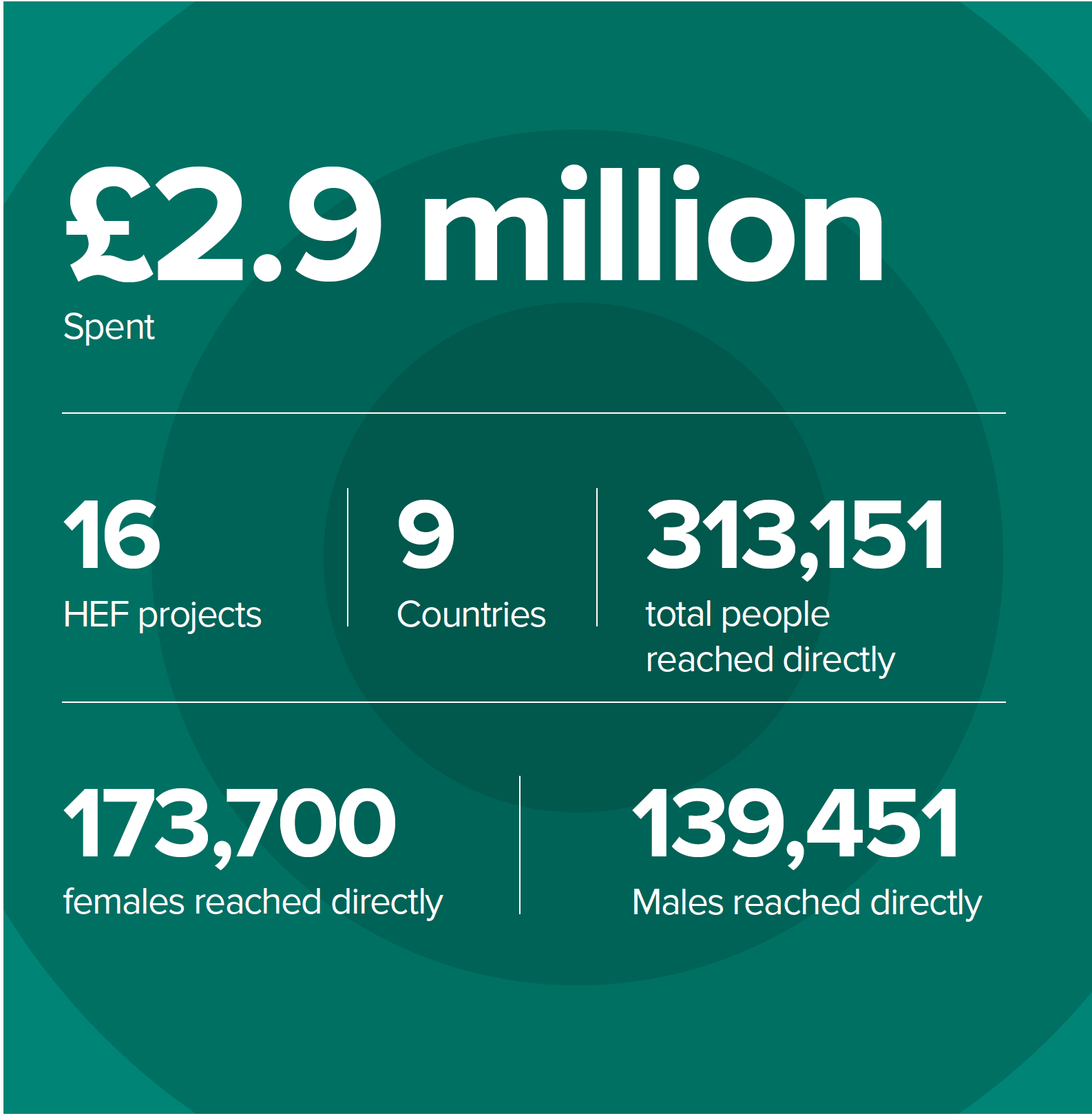Humanitarian Emergency Fund: annual report 2023-2024 - executive summary
A summary of the report on the impact of projects funded through the Humanitarian Emergency Fund in 2023 to 2024.
Introduction
Global humanitarian needs are at record highs. In 2023, the United Nations (UN) estimated that 363 million people[1] around the world needed some form of humanitarian assistance. In the past year there were countless crises which continue to exacerbate this challenge – conflict in Ukraine, Sudan, Syria and Gaza, the hunger crisis in East Africa, as well as extreme climate shocks affecting Malawi, Libya and Morocco.
The Humanitarian Emergency Fund (HEF) was set up by the Scottish Government in 2017 to ensure that its humanitarian funding was used effectively and transparently. The HEF awards a minimum of £1 million every year through an expert panel[2] comprising representatives of eight Scottish humanitarian charities. The panel meets regularly to assess global crises and advise the Scottish Government where this funding would have the greatest impact. This allows the charities to respond swiftly and appropriately to both sudden onset emergencies as well as protracted crises.
The HEF uses a rigorous selection system with proposed interventions meticulously evaluated by peers. Supported by the Disasters Emergency Committee[3] which administers the Fund, this process brings greater accountability whilst also fostering a culture of continuous improvement and innovation in humanitarian response.
In the financial year April 2023 to March 2024, £1 million was spent in five countries in response to four humanitarian crises. These were the Sudan conflict (May 2023), Libya flooding (September 2023), Afghanistan earthquakes (October 2023), and South Sudan border displacement (February 2024).
The Scottish Government allocated an extra £1.9 million for five other HEF responses – including Cyclone Freddy in Malawi (March 2023) and the subsequent food crises there (February 2024), as well as four ‘Loss and Damage’ climate projects in Ethiopia, Kenya, Zambia, and Pakistan (December 2023) from the Climate Justice Fund. The Scottish Government also awarded £750,000 directly to UNRWA for its response in Gaza and £500,000 directly to the British Red Cross to respond to the cholera crisis in Zambia (Scottish Government website: Humanitarian funding for Gaza and Scottish Government website: Humanitarian funding for Zambia).
In total the Scottish Government provided £2.9 million of humanitarian funding through the HEF mechanism.
This report details the impact and key learning of the HEF responses in the past year.

Infographic text below:
£2.9 million Spent
16 HEF projects
9 Countries
313,151 total people reached directly
173,700 females reached directly
139,451 Males reached directly
Contact
Email: carrie.sweeney@gov.scot
There is a problem
Thanks for your feedback